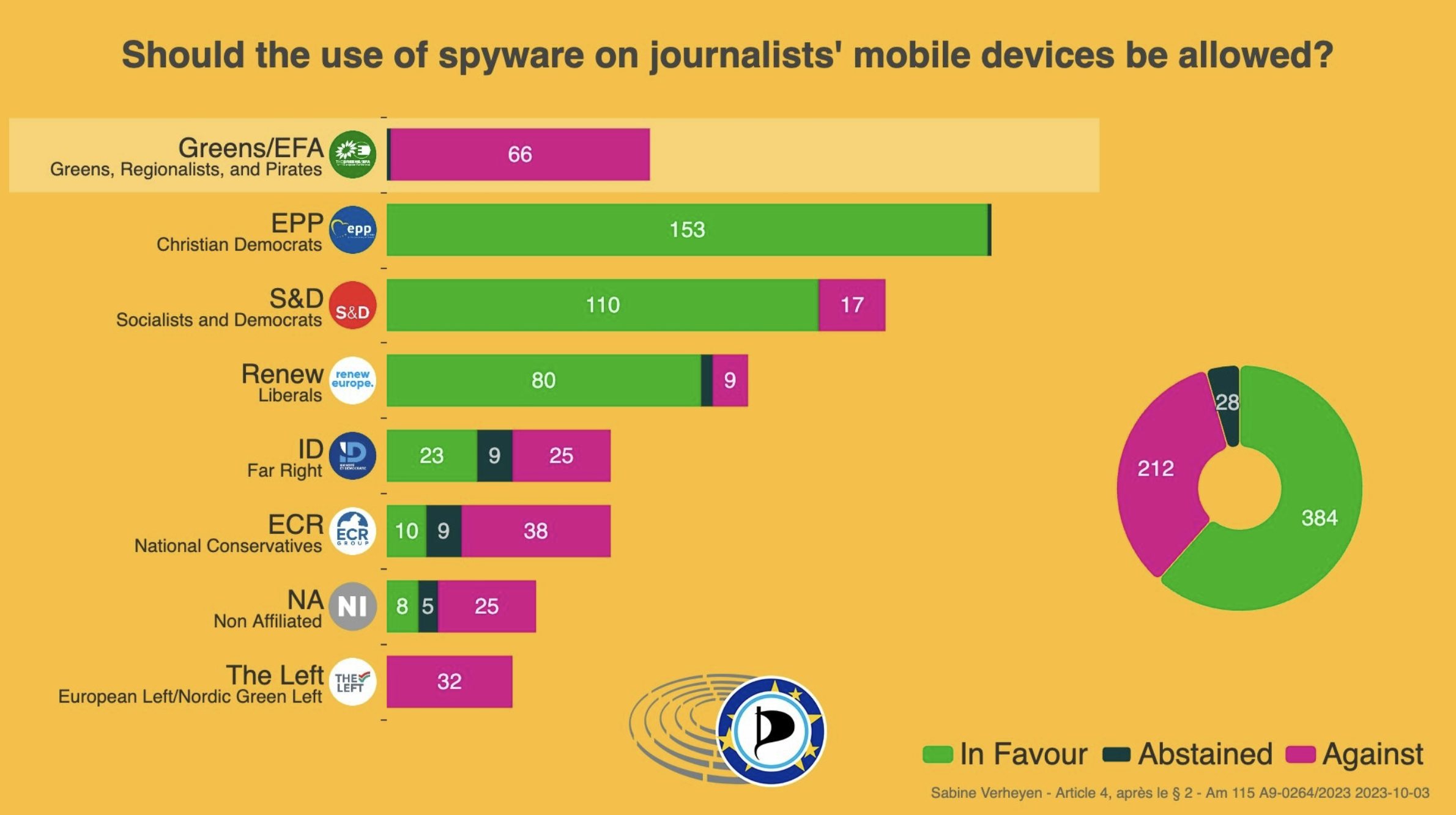In the 21st century, technology has been rapidly developing. I'd go as far as saying that, in terms of technological advancement, we live in the most fascinating era of our lifetime. Artificial Intelligence is getting steadily integrated into our lives and jobs, assisting us with learning, studying, and working. 3D printing has become so effective and efficient that even houses can be built with it. Social media has become an important part of our lives which allows us to connect with people across the globe much easier. Robotics industry has become integrated into the key processes such as medical surgeries, and the drones industry has revolutionised our lives – both in the war, and outside of it.
We’re not the only generation to witness such a level of innovation. In a way, humanity went through this before many times: inventions of the steam engine, electricity, electronics – you name it; they changed our lives and became a vital part of the economy and industry, similar to modern technology. However, there is one fundamental difference: it is more often than not the social and cultural change isn’t equally matched. This phenomenon is called “accelerating change”. Dorothy Neufeld in her review of six innovation cycles which humanity has been going through since the 18th century also outlined that each cycle takes 5-10 years less than previous to be completed.
While the reduction of time for each innovation cycle may sound welcoming, the societal side such as technology acceptance and its regulation doesn’t always keep on track. Unfortunately, this is a huge issue for the majority of left parties and movements whose record has been far from ideal by either completely ignoring the key policies that would benefit many, or taking the wrong stance. This will only solicit further deregulation of the tech sector without a proper opposition, leading to enshittification – thanks to politicians from the wide spectrum (European Left, centrists from ALDE, centre-right EPP and right-wing ECR) who have taken lobbying money from the big tech.
Therefore – and I’m saying this as a social democratic pirate – it is time to fundamentally rethink the left’s approach to tech policy by abandoning the standard socialist ideology of the state’s dominant role in favour of progressive policy with fair rules for all players that ensure healthy competition. That’s where the policies advocated by Pirate Parties and the practical use cases of such policies will be beneficial. Not only will it ensure the population reaps benefits from the tech sector, but it will also create an environment that stimulates more technological innovations which will benefit societies.
Break up surveillance capitalism
The term “surveillance capitalism” was coined and popularised by Harvard professor Shoshana Zuboff in her essay “A Digital Declaration: Big Data as Surveillance Capitalism”. She defines it as a “radically disembedded and extractive variant of information capitalism” under which the behavioural data is being harvested from population for analysis and sales. There are two major players who propagate such capitalism: big tech and data brokers.

Harvard professor, American writer, social psychologist Shoshana Zuboff. Photo: Michael D. Wilson
While big tech is certainly engaged in obnoxious data collection practices, their practices have been covered extensively by mainstream media. Data brokers, on the other hand, are in comparison less known and much worse – and they will be the focus in this chapter.
They are companies which collect people's personal data from various sources. Usually it’s done by scraping the data from various public sources such as social media and public records, or by buying the data from a variety of sources: big tech, advertisers, independent app developers – in short, anyone who is eager to profit on the back of people's personal data. And theoretically, anyone can buy data from a broker: private individuals, companies in a wide variety of areas, big tech itself, or even governments directly – including foreign ones.
That directly correlates with the digital advertising model and how companies weaponise it to build profiles of internet users. There are two primary ways of how advertisers achieve this goal.
First is advertising ID in smartphones, which is a unique string of characters that is available globally for all other apps installed on a smartphone. At the beginning it was configured as permanent and non-changeable, but after the backlash it caused, both companies made them resettable. Nonetheless, those advertising IDs cannot be completely removed, and they still allow app developers to link information about you and the services you’re using.
Second is cookies. They are small files that contain user data which identifies a specific visitor to a website. That information can be anything: your language preferences, device operating system, browser type and version, items in the shopping cart, login details etc. They are mostly stored locally in the browser rather than the website.
There are two types of cookies:
– first-party cookies belong to a website you're currently on. For example, it may recognize you had an item in a shopping cart after you closed an online shop page, or remove the necessity to log in again on social media. Those are mostly to personalise your experience on the given website;
– third-party cookies belong to another website integrated in one you’re currently in to collect your data and use it for targeted advertising. Usually ad networks or social media companies provide code that can be embedded into other websites. Therefore, each time a user visits a website with this code, a cookie is downloaded that tracks the user’s online activity and behaviour across other websites that also have this code. That is why, for example, you can be browsing for red shoes on website A, and then later that day, you start seeing an ad for the same shoes on website B — it is an online advertising tactic known as “retargeting”. This happens when you usually click on the “accept all” option when the cookies banner appears on a visiting website; after that, dozens, hundreds or even thousands of tracking cookies are stored into your browser data.
This data is invaluable in the "right" hands: if you collect enough data about an individual – for example, financial data, hobbies, health information etc. – then it can predict the costs of health insurance for a person. And any deviations (for example, eating more unhealthy food) can immediately reflect on that prediction algorithm to spike up health prices.
Healthcare is just one example of how such information can be weaponized. One of the most disturbing stories in the last few years related to digital advertising was about a Catholic priest who was ousted after it was revealed to his superiors that he was using a popular dating app for gay people called Grindr. But how did they find out this information? Well, it turns out that a local newspaper managed to get their hold on a location data from his smartphone collected by data brokers (who bought data from cellular operators and Grindr itself), and on top of that, the same location data revealed he spent plenty of time in LGBT-themed bars.

The Grindr app is among other dating apps on the mobile screen. Illustrative photo: Getty Images
This specific issue is more USA-centric than EU, where at least there is some data protection with GDPR, as flawed as it is – and the left has been mostly supportive of such measures. However, there are cases when data brokers use loopholes in national laws to evade the rules – such as Sweden, where companies can gain a journalists' legal protection to evade the law. Such loopholes must be removed.
An important step should be to improve GDPR and Digital Markets Act (DMA) with better clarity on its provisions, and the position paper from European Digital Rights (EDRi) is a good start. That includes improving cross-border enforcement and procedures, and making the option to lodge a complaint and request data stored on an individual much easier. Also, instead of attempts to put the targeted online behavioural advertising into some sandbox of “reject all” or “reject some third-party cookies”, any behavioural advertising should be banned completely.
Support end-to-end encryption and codify right to privacy and encryption
Politicians from different spectrums and in different countries have been pretty much consistent with attacks on messaging encryption for a long time, using different reasons to justify – from terrorism to protecting children from abuse. This is lazy and deflective rhetoric to excuse the failings in social policies such as underfunding of social services, especially in the mental healthcare sector, and lack of investments in local communities which would help build clubs of interest (reading, arts, sports etc.). As a result, it drives teenagers towards the social media as an escape haven, causing harm of their mental health and giving politicians the grounds to blame tech for everything – including encryption for hiding of child abuse.
However, evidence shows that unencrypted communications only threaten people's private lives – especially for the victims of domestic abuse and LGBTQ+ discrimination. Yet it doesn’t stop politicians from attempting to crack down on the security of private communications. Latest attempts are the following legislations: EARN IT Act in USA, ChatControl in EU, and Online Safety Act in UK. Although the names of legislation are different, their goal is the same – to introduce a new solution for spying on people’s private messages called “client-side scanning” as a “lawful” access to end-to-end encrypted communications without breaking it, despite the evidence proving otherwise.

UK Prime Minister Rishi Sunak is promoting the country as a leader in tech security. Photo: Bloomberg / Contributor
What is client-side scanning?
One type of encryption is server side encryption, when after sending the message an encryption process happens “in the middle” and therefore you trust the company of the developers to not give up encryption and decryption keys. For example, in Telegram’s standard cloud-based chats messages are encrypted and stored on their servers. Another type is end-to-end (E2E) encryption used in the messengers such as Signal, WhatsApp, Briar, or PGP in emails as the way to secure your private communications by encrypting your message with keys stored at your physical device and send encrypted data to your companion, who decrypts your message at his/her device too. It means that even if a messenger is demanded by authorities to give up data about you and the exact content of the messages, they cannot do that because only your device holds the cryptographic keys for encrypting and decrypting messages.
The idea behind client-side scanning is that such messengers and services would be forced to introduce a certain software (usually an AI) that will scan the content of the message and files before sending, and automatically disclose any material that AI deemed suspicious to the police. To make things worse, the legislation proposes to scan the messages of people indiscriminately, enabling mass surveillance.
Even putting aside the fact that it’s a major invasion of privacy (ironically, in EU the national interior ministers want to exempt police, military and intelligence agencies from ChatControl), using AI to scan messages’ content is extremely unreliable and causes huge problems for people due to false positives and cases that are out of context. For instance, Google has such functionality already implemented in their Google Photos app – as a result, in 2022 a software engineer from the United States had his account completely locked, and then was reported to the San Francisco police because he took a photo of his ill toddler which was required by the doctor. Even after the police cleared him of any wrongdoings, Google refused to reinstate his account. Another example is Apple’s client-side scanning proposal that was proved to be easily fooled – eventually, they cancelled their plans to implement it.
It is incredibly sad to see that the majority of the left parties almost consistently take the wrong stance, as witnessed with their support of client-side scanning measures – both on national level and in European parliament. It went even to 90% of the Socialists & Democrats (S&D) party group in EU parliament voting for allowance of spyware to be used on journalists.

The results of the vote in the European Parliament to allow the use of spyware against journalists. Photo: Patrick Breyer @echo_pbreyer @digitalcourage.social
Pirate parties in Europe have been very consistent with opposing such measures. And the left must join in unequivocal condemnation of any attempts from the governments to ban encryption – regardless of the ideology – and be more bold with protecting the right to privacy.
There are some positive signs, such as the Employee Data Protection Act proposed by the coalition government in Germany. This legislation is supposed to enshrine in law the data protection for the workers and provide right to encryption (which is what Pirates stand for as well). Other left-leaning parties should pick up the same agenda and not fall behind – especially the progressive Spanish left coalition government and, eventually, UK Labour Party which is projected to be heading to government.
Regulate AI to ensure it is for the many, not the few
Artificial Intelligence technology has been evolving the fastest among any other technology in the past 10 years, and especially since the foundation of OpenAI. Regardless of the company’s practices and its business model which I’m very critical of, it’s hard to deny that ChatGPT has proved it can be helpful when used responsibly as a supportive tool – especially in healthcare. For example, last year ChatGPT correctly diagnosed a four-year-old boy’s medical condition while dozens of doctors failed to do that; in another case, it also diagnosed the pet's condition when the vet failed.
So far, only the EU has made its first steps in attempting to regulate AI and technologies that rely on it. First, they managed to broker an agreement that regulates the usage of facial recognition by law enforcement across the EU, even though some last-minute changes added significant loopholes such as using facial recognition technology on recorded video without a warrant. Secondly, they proposed the AI Act (supported by the entire Socialists & Democrats group) that, for the first time, sets up a legal framework for the developers of Large Language Models (LLMs) and AI technology in general. While there are positive elements in the AI Act, it feels like the legislators were making the same mistake made as with GDPR. According to two prominent Pirate Party MEPs Patrick Breyer and Marcel Kolaja, it doesn’t resolve the danger of widespread usage of facial recognition technology in public and reliance by police on it to “detect and prevent crime” or “identify wanted criminals” .
That also includes lack of third-party self-assessments, backbone to punish and scrutinise AI companies such as Clearview AI, whose services are used in 24 countries across the world including the police in the USA. Actually, Clearview AI is the epitome of what can happen if the AI isn’t going to be regulated and kept in reigns: the company built an enormous database of 30 billion of photos from people around the world scraped from social media and millions of other sources, which they use to train their AI model for facial recognition tech. In addition, they successfully used the loopholes in the law: they ignored EU’s fines with a justification “we’re not located in EU”, and successfully overturned UK’s Information Commissioner’s Office fine of £7.5 ml.

Illustrative image: patrick-breyer.de
But the problems don’t stop there in the USA and the United Kingdom: regardless of the companies, police in both countries expand the usage of facial recognition across the public spaces in spite of the high false positive rate, especially among the people of color – an issue that was raised by NGOs both in the UK and USA. That led to the increasing number of the wrongful arrests, and discriminatory tagging of people of color as shoplifters. Not only is it wrong, but the live usage of facial recognition technology with detection of emotions is a totalitarian surveillance technology to which there is no place in democracy. I can’t think of a better example than Hikvision, Chinese state-owned manufacturer and supplier of video surveillance cameras that is engaged in vile human rights abuses against Uyghurs, and whose cameras are still used in some European countries (including, shockingly, Ukraine) and the United Kingdom.
The left should not be satisfied with even watered-down legislations and keep pushing for tougher rules and make sure the AI tech companies won’t be allowed to just walk away from complying with law. That includes fixing the loopholes, improving quality of assessment for the technology ethics, and being transparent on how AI is used and the data sources used to train LLMs. That includes stopping the usage of AI in welfare and justice systems that run predictive algorithms against their own citizens. One such case is using AI to fight against welfare fraud; in reality it has been discriminatory against people based on ethnicity and gender with a high false positive rate. It isn’t a fantasy, but something that was actively operational in the Netherlands, and by the leftwing coalition government in Spain (who position themselves as leaders of reasonable and ethical AI). And I hope I don’t need to say that companies like Hikvision must be banned completely.
Sadly, the Ukrainian government seems to want to repeat the same mistakes. Aside from the mentioned usage of Hikvision, in February 2024, several MPs from the Servant of the People party introduced the legislation 11031 “On unified video monitoring system for public safety”. It would give the police full unvetted access to the CCTVs installed in public spaces, create a fully integrated system of video monitoring, lay out the foundations for further implementation of the automated analytics (aka using AI for plenty of purposes), and collect vast information of data on the citizens and residents. In response, the Institute of Mass Information rightly condemned the legislation for lacking safeguards, and creating tools for mass surveillance with the usage of facial recognition technology in real life, citing London Underground as the example of why such systems only increase the discrimination.

The police of the Kyiv region demonstrates a new video surveillance system with the function of facial recognition. Photo from Facebook: Kyiv Region Police
E-Governance and universal rights
If the left wants to have a government that works for the many and not the few, one of the key elements is to ensure its transparency, and respond to the new challenges of governance and basic rights entitlement.
We live in an age when the technology and access to services online have become an integral part of our lives, which has the enormous potential to save the costs of running services and instead invest the money in other important areas of governance. The cases of Estonia and Iceland, where such digital transformation greatly improves the public services and its satisfaction by population, demonstrate the urgency of implementing it. Education is also important: until the population gets better at using technology, any digital transformation will be useless. For example, according to Bennett Cyphers of Electronic Frontier Foundation (EFF), even with GDPR implementation that requires websites to receive a consent for tracking people via cookies, people still click on it without understanding its implications.
However, those are not the only issues that should be tackled. Providing fast and cheap internet, as well as high-quality tech education, must be two other important elements of a digital transformation. Left usually talks about providing internet to every household by simply saying “let’s nationalise it fully”, as it was with the UK Labour Party 2019 manifesto. In concept, the policy is fresh and necessary: because of Margaret Thatcher’s ruthless privatisation, the United Kingdom has significantly fallen behind with the rollout of fast internet to the population compared to other European countries. However, full nationalisation also brings the risks of easier availability for the state to establish mass surveillance via Internet Service Providers (ISPs). As an alternative, the Swedish model, where municipalities or the state provide infrastructure such as fibre optic and cable, and ISPs act as private companies (which can also be cooperatives!), allows to not only ensure the proper devolution of powers and services provided to the population, but also add some barriers to prevent mass surveillance by the state.
Aside from the right to internet access, public and non-profit libraries are the backbone of education and literacy for any society. And with the accelerating shift of books, music, movies and many other print materials towards electronic versions, such libraries are essential online because they allow people who cannot get a physical copy of a book to get it in digital version. The Internet Archive, with its collection of 37 million books, is a prime example of a library that any progressive society should aim to create. However, in recent years it has been under attack from publishers who claim that Internet Archive’s operational model violates their copyright laws and is a form of “digital piracy”.

A rally against the ban and surveillance of digital books, after publishers attacked the nonprofit Internet Archive, June 2024. Screenshot from the YouTube channel: Fight for the Future
The real reason is publishers are benefitting from the current status-quo. Internet Archive uses the Controlled Digital Lending (CDL) model, under which they scan the physical copies to make them accessible in the library and then lend scanned books in digital versions like any other library. Meanwhile, publishers use big tech vendors to distribute them and attach DRMs to the media – a piece of software that regulates what a user can do with the purchased media, e.g copying it to another device you own – as a result forcing libraries to pay high licensing fees for renting digital books. Hence, publishers see CDL as a huge threat to their profits – and Internet Archive were already forced to remove 500,000 books. Imagine if this happens with a local public library?
The left’s response should be adapting the flagship policy of Pirate Parties: copyright reform. Specifically: creators should be able to have full control of its content and receive fair pay and compensation for it; Creative Commons licensing should be promoted at the national level; copying, storing, using, and providing access to literary and artistic works for non-commercial purposes should be protected by law as well. In addition, DRMs should be completely banned because it is not for the companies to decide what customers can do with their legally purchased media. Also, we should unequivocally stand with Internet Archive and similar libraries, and push for publicly owned digital libraries which are fully accessible for every citizen and resident.
Open-source and data transparency to build the trust
Free open-source software (FOSS) is a key for building digital sovereignty without reliance on private proprietary software where its author holds the sole responsibility for the software’s future. On top of that, citizens would be able to see for themselves how the digital services work and propose changes that would improve the quality.
Pirate parties have been very vocal about the necessity of creating e-governance services that would allow citizens to have better access, and stress on using open-source software. Some countries in Europe followed this road from the start (e.g Estonia and Iceland), and Ukraine rightly wanted to follow the same path with moving most of its public services to the digital system. That led to the creation of Diia – used by more than 21 million of Ukrainians, according to the official statistics.

Diia interface. Illustrative photo
Now, I’ll have to say this about Diia as an observer: in terms of functionality, the service is very helpful and useful, especially for Ukrainian refugees. I know personally some of them who left the country since the beginning of the war without ID documents due to various reasons, but thanks to the digital versions of those documents in Diia, they didn’t stay paperless. The problem is, the Ukrainian Ministry of Digital Transformation decided not to open-source the application, unlike Estonia, and its data processing and infrastructure wasn’t exactly transparent – which caused several cybersecurity experts from Ukraine to publish an open letter to the Ministry with 22 issues about Diia. Credit where it’s due, Mykhailo Fedorov eventually made a U-turn (despite initial evading response from his deputy) and began open-sourcing elements of Diia in May 2024.
Left in Europe, sadly, aren’t exactly contributing to the cause: they supported the eIDAS legislation which is not only a proprietary service, but also allows sharing your ID data with big tech when it’s completely unnecessary and only increased reliance on tech corporations. In addition to that, the majority of S&D group supported the European Health Data Space that gives full access of citizens’ healthcare data to tech and pharma corporations without consent, and without an option to opt out. While it is true that such data is extremely helpful for medical research and other research in key sectors, it should instead be opt-in and not to be shared further without consent.
Iceland is a blueprint for a truly transparent and democratic system on how to handle the data stored about citizens and provide public services. They have done fantastic work in pushing for the usage of open-source software, even making it a government official policy to treat open-source and proprietary source software equally for public services. As a result, by 2023 90% of government information systems in the public sector use open-source software, and there is a transparency on the amount of data government stores on their citizens. Another positive case is Germany moving thousands of its PCs to use LibreOffice software instead of Microsoft Office after the data breach.

Members of the Pirate Party of Iceland after the announcement of the first election results in October 2016. Photo: Frank Augstein / AP
Left governments should follow the same path, and aside from making it more open and transparent, there is one simple reason that appeals to the socialist cause. If the public money is used to provide digital services, then open-source software should be preferable to choose.
After all, “public money, public code.”
Why are these policies still important, despite the latest Pirate Parties’ poor EU elections performance?
Latest European parliament election results dealt a huge blow to the European Pirate Party group that lost 3 MEPs out of 4. That is despite pushing tech policies that benefited the ordinary people: right to repair, Digital Markets Act, scrutinising AI Act and Digital Services Act, supporting GDPR (even with its flaws) – which brought the bigger awareness about how people’s personal data is handled – and the work they did with pushing for the better control of the private data.
Despite these disappointing election results, the European population generally supports the ideas of the Pirate Parties. In Germany, 78% of the population have taken measures to protect their personal data since the introduction of GDPR, while 74% of the population in France believe it is necessary to have control of the personal data online. In the Czech Republic – one of the Pirate party bastions – more than 80% of media workers believe tech companies collect too much information about people and that citizens should have the right to access the information about how their data is processed. Lastly, in the 2022 poll 64% of EU citizens expressed support for the Digital Services Act.
So why did Pirates suffer such a major defeat, when their core policies have popular support? In my opinion, the reasons are around Pirate parties themselves, the agenda they’re pursuing, and plenty of internal disputes the public gets to know about due to their transparency.
Original Pirate Party was never created as a party to compete with mainstream left/centre/right parties – in addition, their policies were always narrow-focused on technology. And when it comes to the policies outside of tech, Pirates rarely had a common ground, and served as an umbrella for like-minded people. After all, there is a case for pushing open-source and transparency among some centrist and centre-right politicians too: in Estonia, parties such as Centre and Reform have pushed for digital government services since the 1990s, and in Ukraine Zelensky’s government is also focused on moving public services into the digital sphere.
That explains why Pirate parties, when their political agenda focused purely on tech policy, rarely had at least modest national electoral success, and the only two exceptions confirm the rule: Icelandic and Czech Pirates. Both have, to a point, successfully transformed themselves into more mainstream parties and formulated more or less cohesive stances on the majority of aspects in governance. And while Icelandic Pirates have become a classic social democratic party with firm support for progressive taxation and Universal Basic Income (they still keep this topic at the forefront of the debates), Czech Pirates took a more centrist approach. As a result, Icelandic Pirates became a strong force of opposition in the parliament by gathering around 10% of the votes in the last 3 general elections since 2016, and Czech Pirates for the first time in the history of Pirate Parties became part of the government in 2021. Until 2016, Pirate Party of Germany has also been relatively successful, but its demise due to internal disputes and inexperience, and then the horrible death of a party member by hands of another member on top of the latter’s suicide, never allowed them to recover properly.
So what happened this year? First of all, Pirates were hit with the catastrophic election results of the Greens alliance, which they are a part of. Even the solid record of Patrick Breyer MEP, who has been the main voice of progressive and democratic tech policies, didn’t help his successor candidate to retain the seat.

Patrick Breyer, a German digital rights activist, lawyer, politician of the German Pirate Party, since 2019 a member of the European Parliament. Photo: Wikimedia
But shifting the entire blame on Greens would be unfair. The transformation of Pirate party into a more mainstream one allows it to become a broader movement, but also has its consequences with the “core” of the movement and risks irritating them (unless one manages to stay true with the Pirate views). While Icelandic Pirates successfully performed such transformation, Czech Pirates are the case of how it can be bumpy. Despite its electoral success in comparison with the majority of other Pirate Parties and becoming the first Pirate party ever to form the government, the current leader Ivan Bartos has shifted the party into the centre and made it so amicable that it caused the admittance of people who don’t really care about the foundational views of Pirates and want to do the general appeal. Obviously, it doesn’t please the “core” Pirates. As for German Pirates, the accusations of sexual harassment among its lead members and failure to address them caused damage, and even nowadays the defections are ongoing. Ironically, the full openness and transparency that Pirates are preaching and practising hits back when they get into the internal disputes, exposing their divisions and alienating the electorate.
Lastly – and this is more of a personal observation – there is an argument that Pirates have failed to create a new generation of politicians and activists who would carry the flag further, while the current generation becomes older and less energetic. It’s not to say that young people don’t care about tech issues – but for them, they’re not at the forefront of their political views, and from their perspective, it is more reasonable to join mainstream left/centre/right parties and call for favourable tech policies within.
***
So where does that leave the Pirates in the end, and what should the left do?
With losing 75% of MEPs that puts additional pressure on a sole remaining Pirate Party MEP Markéta Gregorová, and with some commentators predicting the sunset of Pirate parties, it’s going to be challenging for the Pirate movement in future. And personally, as a staunch supporter of their views, I hope the movement and the parties will be able to rediscover themselves and become at least a credible opposition force across Europe in the future.
That said, this is a unique opportunity for the left to take the lead and become the primary voice of progressive tech policies, making it work and benefit not for the corporations and advertisers interested in profits, but for the ordinary people. Such policies would include:
– easy accessibility for public services that do not put pressure on citizens’ budgets;
– transparency of governance, its services’ implementation, and the data stored on its civilians;
– protection of the people’s privacy and its treatment as a fundamental human right;
– the clear opposition to indiscriminate surveillance policies and technology that enable it
Working and cooperating with organisations such as La Quadrature Du Net, EDRi, EFF or Open Rights Group, as well as Pirate Party politicians and activists, would also help.
If social democrats and socialists are serious about providing a fair and equal society, it should lead the charge in doing this with the tech sector as well. There is no better time for that than now.



